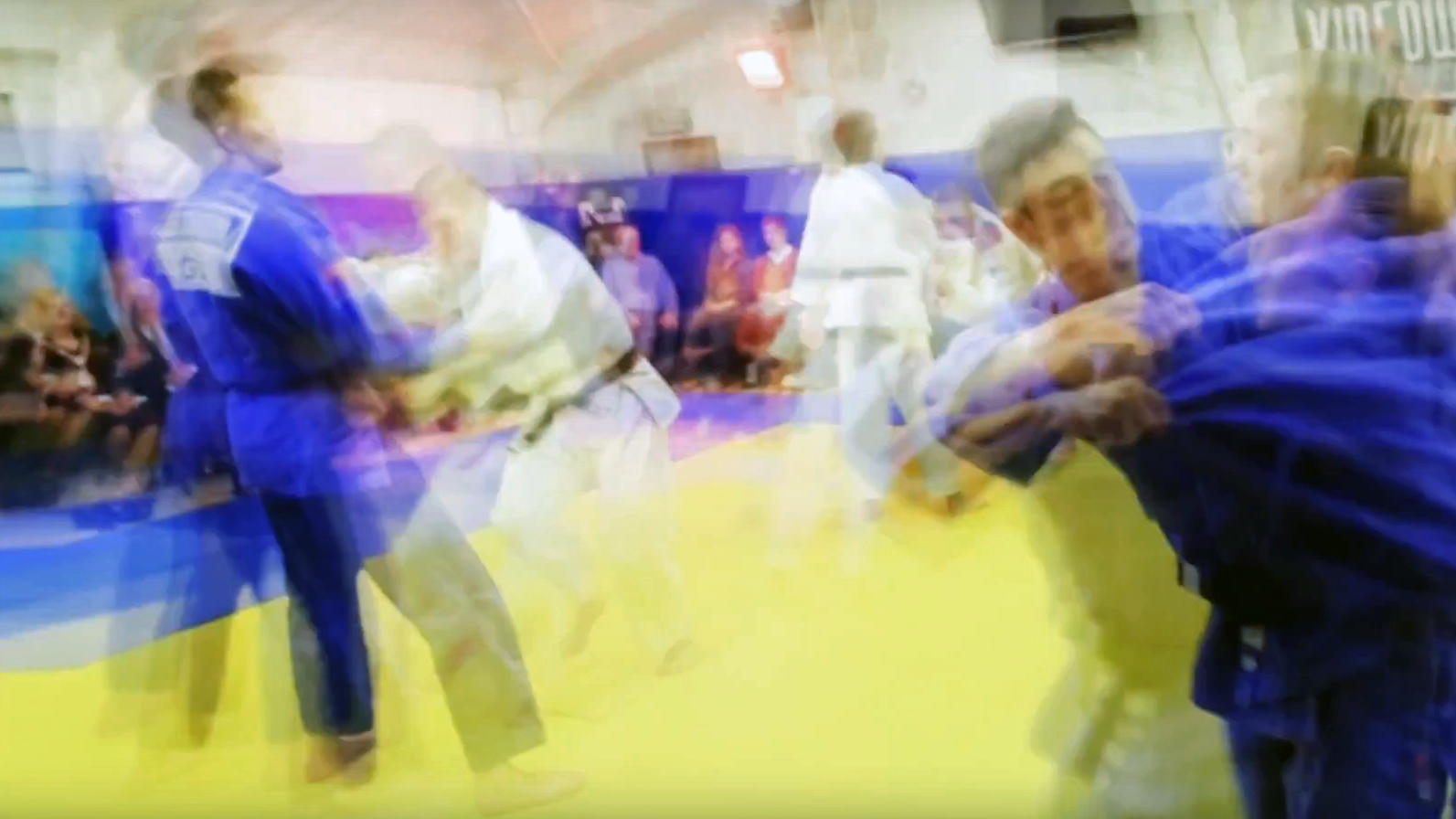
When you say the term “full-time training” in sports, people tend to think of athletes who train throughout the day. In judo, there are full-time training facilities in Europe, and elsewhere, where you live at the facility (or nearby to it), and do various forms of training there, at different times in the day.
When I started out in competition training, I went to the LA Judo Training Center (now defunct) where I slept in the dojo. I was literally (not just figuratively) living there. I had gone there for training during my university’s summer break and had no place to stay, so the coach let me sleep in the dojo’s office. He gave me a sleeping bag and a pillow, and that was my home for three months. To earn my keep, I would train the kids in the late mornings, get a personalized training sessions in the afternoons, and attend group sessions in the evening. This was a form of full-time training although the facility was not designed for that.
Later on, I did full-time training stints at the Camberley Judo Club in the UK, a facility that was designed for that. They even had a dorm for us to live in. Our coach would wake us up very early in the morning for a jog. Then around noon, we’d do some strength and conditioning work. In the afternoon there would be some technical work. And in the evenings, it’d be mainly randori.
In Malaysia we have sports schools where the judo players do some form of strength and conditioning work in the mornings and some technical and sparring work in the afternoon or early evenings. This is also a form of full-time training.
So, there are many approaches to “full-time training” and it usually involves players training at least twice a day. But then you read about players like Marcus Nyman of Sweden, a double World bronze medalist and eight-time IJF World Tour gold medalist, who has a full-time day job. Apparently, he works in the construction industry, building elevators during the day, and does his judo training in the evenings. Can he be said to be training full-time? By definition he is not. But for sure, he is training professionally. He wouldn’t be competing at the highest level (and achieving the results that he does) if he weren’t training as a professional athlete.
To me, training as a “professional athlete” is a far more meaningful phrase than doing “full-time training”. A person who trains twice or three times a day is, by definition, training full time. But what if their heart or their mind is not into the training? What if they are just going through the motions and doing the drills just as a matter of course? A player who trains just once a day but who is fully focused, will be far more productive than a person who trains several times a day but is doing so mindlessly.
Not every serious judoka is able to train full-time. Some might have school, work or even family obligations that get in the way. But everybody can train like a professional. It entails, first and foremost, having a professional mindset. That means whatever spare time you have available, you want to spend it on training. It requires making a lot of sacrifices and working around a challenging schedule to eke out whatever ounce of training you can get.
In a best-of-all-worlds scenario, an athlete is able to train twice a day. That is the ideal. There is great value in such frequency and consistency. And there will be some athletes who can indeed commit to this. But conditions and circumstances vary for each individual. For some people, it is simply impractical to train full-time. But even so, you can still train professionally.
Training professionally (but not full-time), might mean coming to practice early and staying back late, to get in that extra training. It might mean multiple sessions on those days when you can make it. It might mean training at odd hours.
As they say, “If there’s a will, there’s a way.” If an individual is sincere about training as a professional athlete, they can work closely with a dedicated coach to figure out a way so they can get the right amount of training, and the right type of training, that they need, regardless of how challenging their circumstances may be.
The important thing is whether that individual is committed to training as a professional athlete. In short, are they all in? If an athlete tells me they want to fulfill their full potential as a judoka, I tell them they have to meet me half way. If they are willing to do that, the sky’s the limit.
